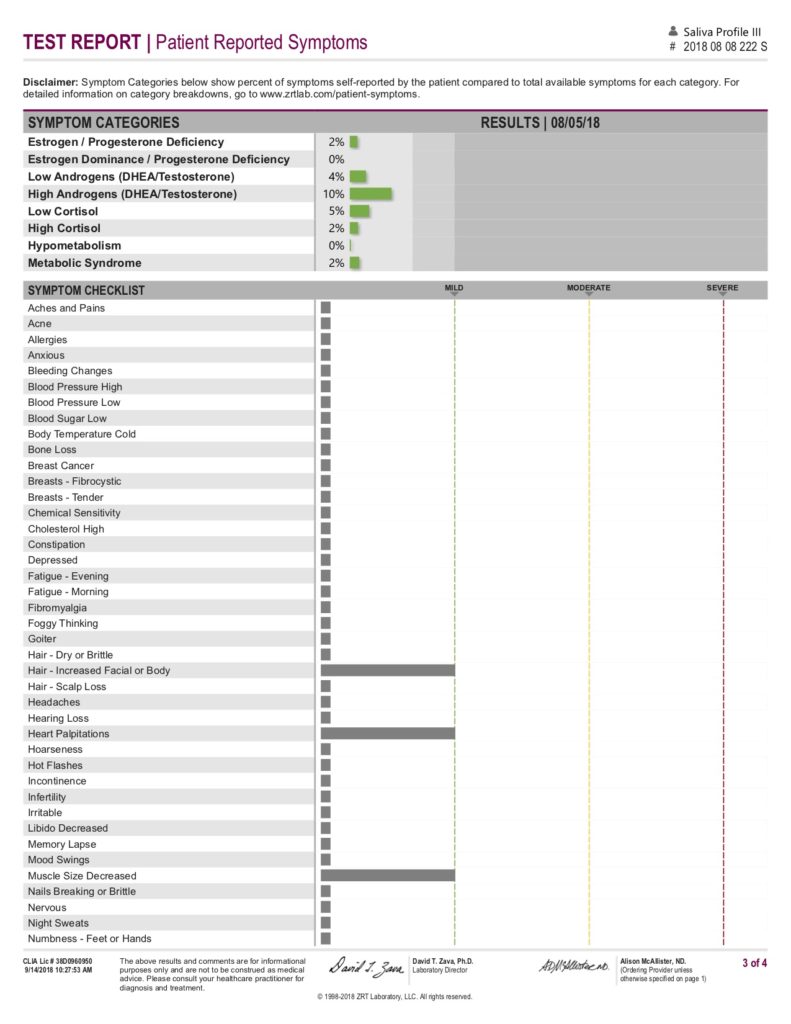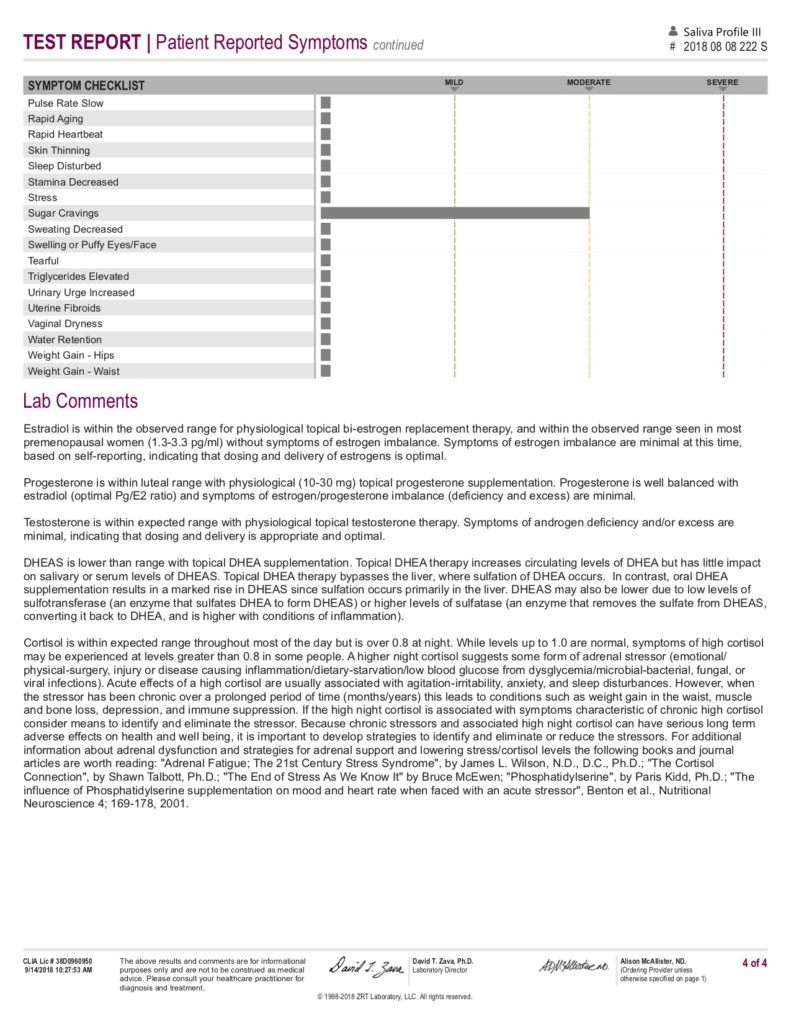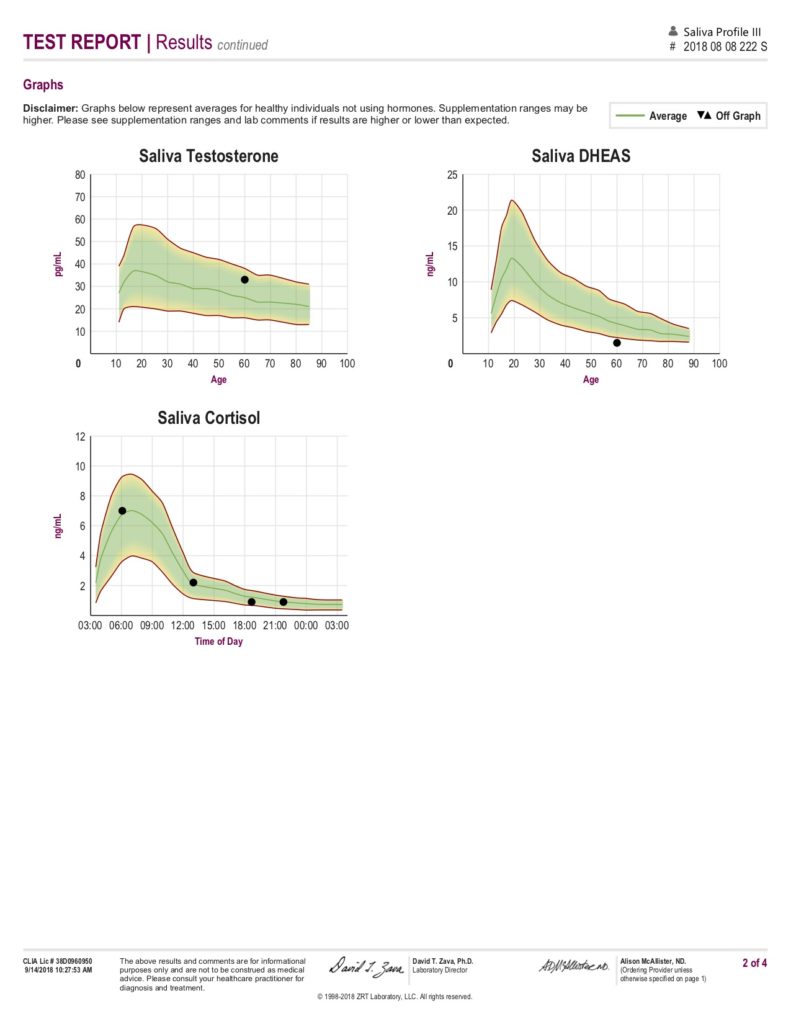Why ZRT Saliva Testing is More Effective Than Blood Testing for Hormones
Many providers do blood serum testing for hormones. While there isn’t anything necessarily wrong with this, saliva testing is going to give you a much more detailed idea of what is specifically going on with YOU. Blood testing is good for identifying disease in the body and also for finding major hormonal imbalances, however it doesn’t always pick up the more-subtle nuances that can be happening.
We see a lot of patients here at our office who have been to other providers for their hormone-balancing but still aren’t feeling great. There can be a variety of reasons for this, but one big thing that may be a contributor is that because the subtle, little things that aren’t detected in blood serum testing may be the very things that are causing you to feel some pretty major symptoms.
For More Information Call Us at 817-539-6168
Or fill in the inquiry form below and tell us the best way to reach you.
Saliva Testing

Hormones need to reach the applicable cells and tissues. Think of your bloodstream like a road, and think of your cells as houses along that road. Your major hormones (both active and inactive) will show up on a blood draw. However, a blood draw can’t reveal whether or not the hormones are getting into your cells like they should be. You may have seen a provider before who has tested your hormones via blood serum tests and prescribed you hormones based on those results. Unfortunately, because they can’t see what is going on in your cells, you may not feel better, even though you are on hormone therapy.
** See the example pages below of a ZRT Saliva Test.
Cortisol
Conversely, saliva testing is able to identify exact imbalances that doesn’t show up on a blood test. It’s also a more-accurate method when hormone rhythms need to be identified to determine WHY you are feeling the way you are.
For example, cortisol levels by their very nature are supposed to fluctuate throughout the day and rise and fall in a particular rhythm. Because a blood test only looks at one specific time of day, if there is a problem in the rhythm, it won’t give you an accurate depiction of what is going on or why you are feeling the way that you are.
Cortisol is a “stress hormone” and is one of the most important hormone to keep balanced. It’s needed to live, sleep, manage stress, regulate mood, balance blood sugar, regulate blood pressure, and modulate the immune system. With constant stress, your cortisol levels can initially rise, eventually causing you to deplete your “reserves,” leading to adrenal fatigue. Adrenal glands are associated with the fight-or-flight response. They produce cortisol, adrenaline, and other hormones that control your body’s responses to every kind of stress – physical, emotional, or psychological. Adrenals also produce hormones that regulate energy production, immune function, heart rate, muscle tone, and other processes that help you to cope with stress. Adrenal fatigue can become severe and wreak havoc on your day-to-day living. Its most prominent symptom is fatigue, which can range from mild to severe. Every organ and the bodily system is affected including carbohydrate, protein, and fat metabolism, fluid and electrolyte balance, the cardiovascular system, and sex drive. A lot of other changes take place at the biochemical and cellular levels to respond to and compensate for the decrease in adrenal hormones.
Cortisol levels should be higher in the morning and slowly drop throughout the day. In an ideal world, melatonin levels should then start to rise in the evening to signal your body when it’s time to go to bed. So, if cortisol is tested by a blood draw, your results can come back as “normal,” even though they may actually be anything but. The saliva test is a four-point test meaning that you test 4 specific times throughout a 24-hour period. If your cortisol is higher throughout the latter part of the day and into the night, then you could very well have a problem with high cortisol levels and all of the symptoms associated with it. A blood test will only detect your cortisol level at the time it’s taken. High cortisol levels can be indicative of adrenal fatigue. Additionally, imbalances in cortisol can disrupt the natural circadian rhythm which can then cause sleep problems. Getting good sleep is one of the most important pillars to good health, so accuracy on testing is key.
The Sex Hormones
The hormones that are tested via the ZRT saliva test (and some depend on whether you are male or female) include:
- Estradiol
- Estrone
- Progesterone
- Ratio of Progesterone to Estrogen
- DHEA
- Testosterone
- Cortisol
As mentioned above, we will get a much more accurate view of what your sex hormone levels are on the cellular level, which directly affects your health and how you feel. Estrogen Dominance is a condition where your estrogen levels are too high. This can be caused from a variety of reasons. And if your estrogen levels are too high, especially when compared to your progesterone levels, this can be dangerous. It can cause unpleasant symptoms such as heavy periods, but estrogen is a catalyst for growth. This means that you may have other cells that can quickly multiply, and even cause some cancers. Your body might be making too much estrogen, or your body might not be able to break down estrogen properly so that you aren’t able to get rid of the excess. The estrogen to progesterone ratio is also important for your health. ZRT, the company that does our saliva testing explains the ratio in more detail here.
Our Providers at Dynamic Life Health Center Can Help!
Both Dr. Lyn Berutti and her Physician Assistant, Melanie Martin, have years of experience and education in Internal Medicine, Functional Medicine, and Hormone Balancing. We want our patients to be as healthy as possible and we use the most up-to-date testing available so that we can treat you accurately so that you can look and feel your absolute best!
Contact our New Patient Coordinator for more information
When many patients come to see us, they have lost hope because they’ve felt unwell for so long and don’t see any light at the end of the tunnel. It’s rewarding as a practitioner to help so many people realize a much-improved quality of life and a regained sense of vitality!
Please call us to get more information about how our clinic and providers can help you with your health goals and to schedule an appointment.
We look forward to the opportunity to restore your health and regain your vitality for life!
For More Information Call Us at 817-539-6168
Or fill in the inquiry form below and tell us the best way to reach you.
Contact
"*" indicates required fields





